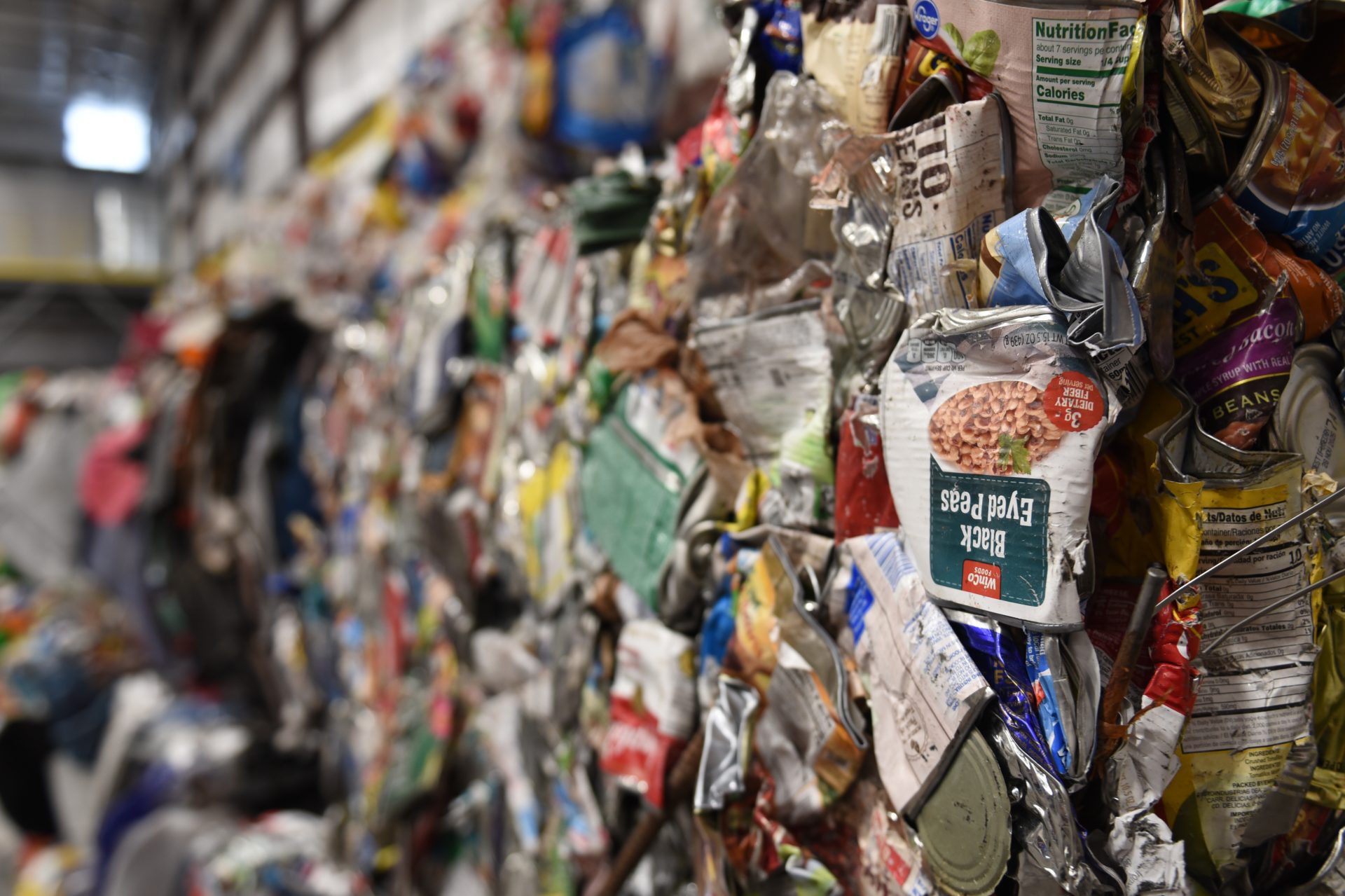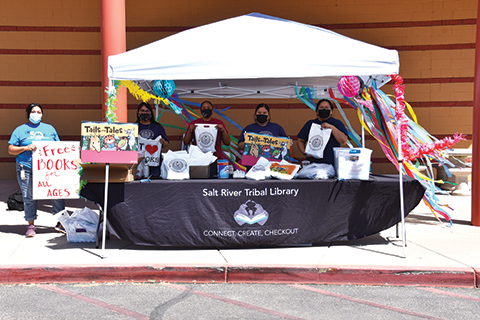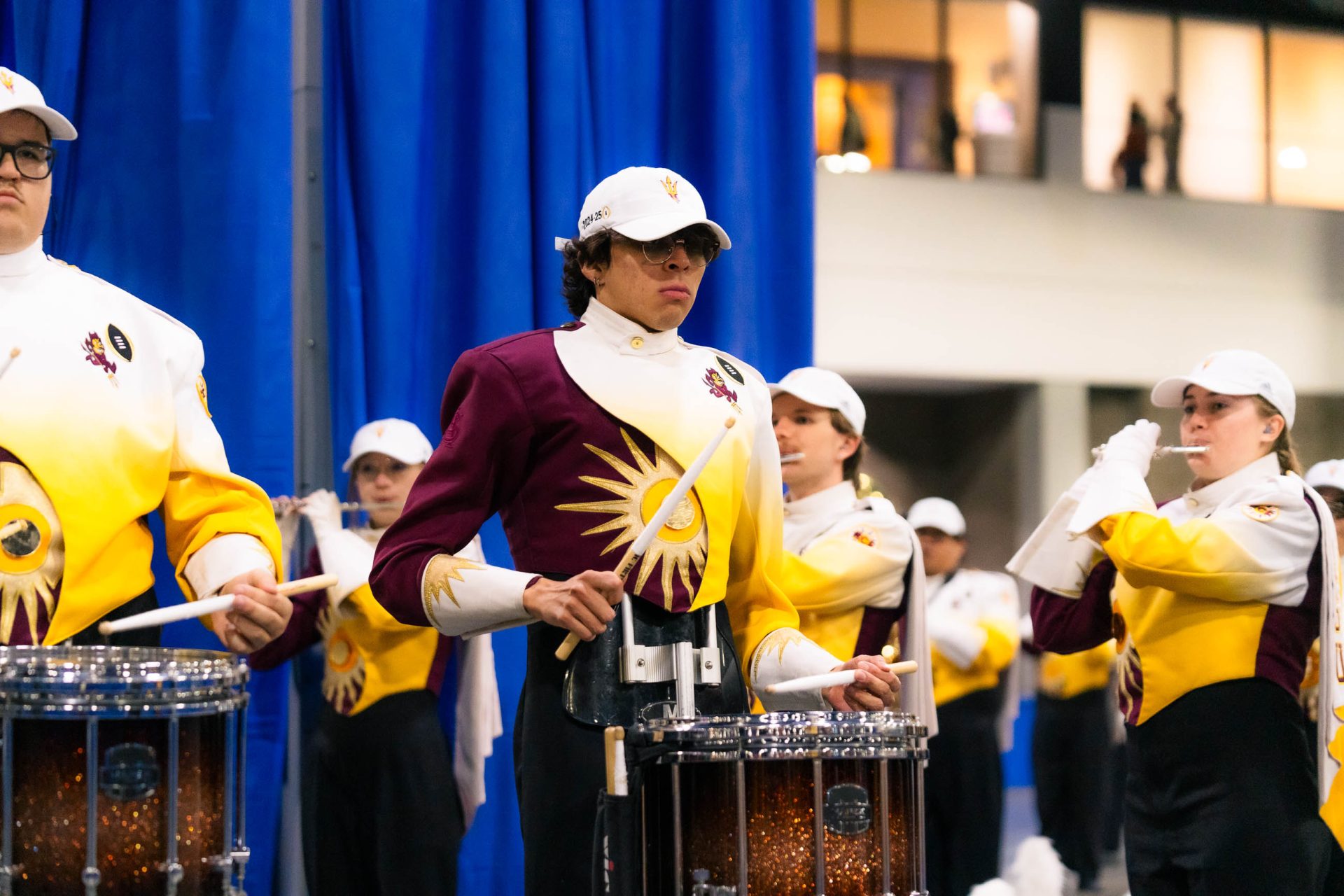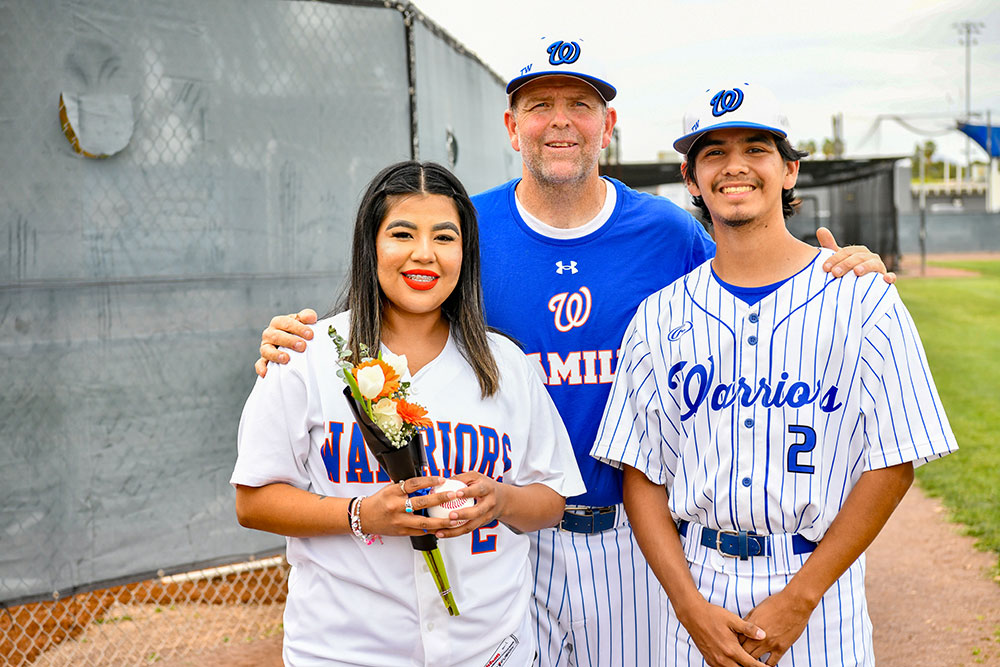VIEWS: 1543
July 1, 2024Revisiting Recycling in the Community
Now that the Materials Recovery Facility (MRF), owned and operated by Republic Services on Salt River Pima-Maricopa Indian Community land, is again fully operational after a fire in 2019, the SRPMIC Public Works Department is promoting Republic Services’ recycling campaign, “Recycling Simplified,” and continuing to pick up recycling from Community members.
The Public Works Solid Waste team continued to collect recyclables from residential, tribal government and commercial customers within the SRPMIC boundaries while the MRF was closed; however, with no MRF for the recyclables to be sorted and processed, they were diverted to the landfill during that time. Now, all recycling collection from the Community is again being processed at the MRF.
According to Gretchen Scott, assistant director, Public Works–Community Services, the Public Works Solid Waste team continues to empty the blue recycling bins weekly on Thursdays.
Scott said that it is important for the Community to be environmentally responsible and protect the land for future generations.
“One way we can help accomplish this is by reducing landfill waste,” said Scott. “A goal of the Public Works Department’s Solid Waste section is to educate our customers on the importance of proper recycling. We ask you to work with us by sharing what you learn about what to recycle and encouraging others to recycle.”
The new Public Works website, which can be found at www.srpmic-nsn.gov/government/public-works/, has an informational flyer regarding container pickup, recycling tips and the link to Republic Services’ Recycling Simplified campaign, available to view and download.
When a new residence in the Community has been established, the new homeowners are instructed to contact Public Works Customer Service, which will submit a work order for the homeowner to receive two residential trash bins and one recycling bin, which is the standard for each household.
Reach out to Public Works Customer Service if your current recycling container is damaged and they will submit a work order to replace your container.
Commercial customers are instructed to contact Public Works Customer Service to amend their existing contract to include recycling services if they are not already contracted for those services.
The SRPMIC Public Works Solid Waste team will be monitoring recycling containers weekly for non-recyclable materials (unclean materials/trash). Recycling containers found with trash items will not be serviced and will be tagged with a notice indicating why. The container will be serviced on the next scheduled trash service day, according to Scott.
For assistance with recycling services in the Community, contact Public Works at (480) 362-5600 or email PWCustomerService@srpmic.nsn.gov.
What to Recycle and What Not to Recycle
The “Recycling Simplified” campaign breaks down recycling into these simple steps:
- Know what to throw: flattened cardboard, metal cans, plastic bottles.
- Empty. Clean. Dry. Recycled materials must be free of food and liquid.
- Don’t bag items: Never put recyclables in containers or bags.
Some examples of items that should go into recycling containers:
- Clean cardboard flattened to fit inside the bin (remove any tape or staples)
- Metal food cans (rinse clean with the label removed)
- Glass and plastic bottles (clean and dry)
Some examples of items that should not go into recycling containers:
- Cardboard pizza boxes that are stained with grease
- Cartons and bottles that smell bad/sour; for example, a ketchup bottle that still has ketchup in it
- Plastic bags and plastic wrappers
Note: Even a small amount can contaminate an entire truck of clean recyclables. If you’re in doubt as to whether a specific container should be recycled, dispose of it with the regular trash.






